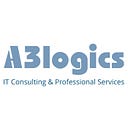Top 6 frameworks to choose for Machine learning enterprise solutions
There is not just one industry that has to do something with machine learning. Or there are more than tens of companies that make use of machine learning to enhance the organization’s productivity. But there are a handful of them that not only have involved machine learning already but also are embedding it into the products they produce for the customers.
Not just for customers but also for the organization itself in terms of in-house software like erp solutions that help in managing the employee relationships or their benefits so as to profit the organization as well as the employee too.
Stepping on to the frameworks that would work efficiently and effectively with the scope of machine learning over business applications. And the best of 6 are as follows:
- Tensorflow
An open-source library also named as ‘JS’, available with multiple language support including Python, Java, Go, Rust, Haskell, etc.
It is more towards learning and works over neural networks such that it could be utilized more in the research-based tasks within the organization.
Initially and originally developed by and for Google itself and then launched with the Apache license for commercial use in 2015–16.
It is envisaged that the famous algorithm of Google i.e. ‘Rankbrain’ has been released with the accommodation of Tensorflow.
2. Google Cloud ML Engine
For pieces of training and predictions, the Google Cloud ML engine is used with the most recommendations for any organization for its overall performance enhancement.
When scalability comes out as a challenge to meet, Google cloud ML engine comes with a distributed network of computers and refrains you from the limitation of limited resources to run complicated algorithms by running it on numerous computers for you, making it easy and quick to access as well as execute.
3. Shogun
An open-source machine learning framework that gained its acquaintance by contributing in the education and learning industry. It comes without a fee for use and works smoothly on C++.
It allows simpler page building on a website by embedding its renowned drag and drop page builder to any CMS or platform for eCommerce. Its machine learning toolbox allows unified methods that enable extensibility as well as rapid prototyping of the data.
It focuses on regression analysis and classification problems and offers interfaces dynamically for multiple platforms including C#, JAVA, PYTHON, etc.
4. Apache Spark Library
One of the most renowned ML libraries, with almost 9x-10x faster implementations than the disk-based traditional systems. Having this, there are many pipelines of machine learning that could be simplified with this including:
- Random data generation
- Feature extraction
- Optimization
- Linear and logistic regression
- Hypothesis testing, etc.
Apache Spark has third party support for .net languages along with Java, R, and Python, etc.
6. Caffe
Framework with a steep learning curve but has a name for working most successfully over images without requiring much or the resources, unlike others.
Geared with image segmentation and in support of neural networks, Caffe is usually adopted for academic researches and large-scale enterprise applications.
7. Keras
An open-source framework dedicatedly based on Python language and known for artificial neural networks. It is somehow related to the Tensorflow library as an interface to the same.
It is designed to execute quicker results over the researches especially. It consists a host of tools that accommodates itself in handling images and text in order to simplify the code for deep neural networks and their algorithm.
Similarly, we can also count on hands for the number of industries too that started to make use of machine learning or its applications.
Summing up with an example
Assuming for the enterprise industry, an enterprise software development company that requires to hire dedicated developers for the development of IT solutions, they belong to different areas of engineering and technology. For which, an organization has to deploy entire human resources for recruitment purposes only. The decision-making process of a machine learning-based HRM software is one of the key examples for the use of machine learning in the enterprise industry.
To keep up with the pace and stand along with the accelerating market, we need to deploy the best product engineering services and machine learning services into our organization, so that the same could also leverage its performance and shine brighter along with the others simultaneously.
